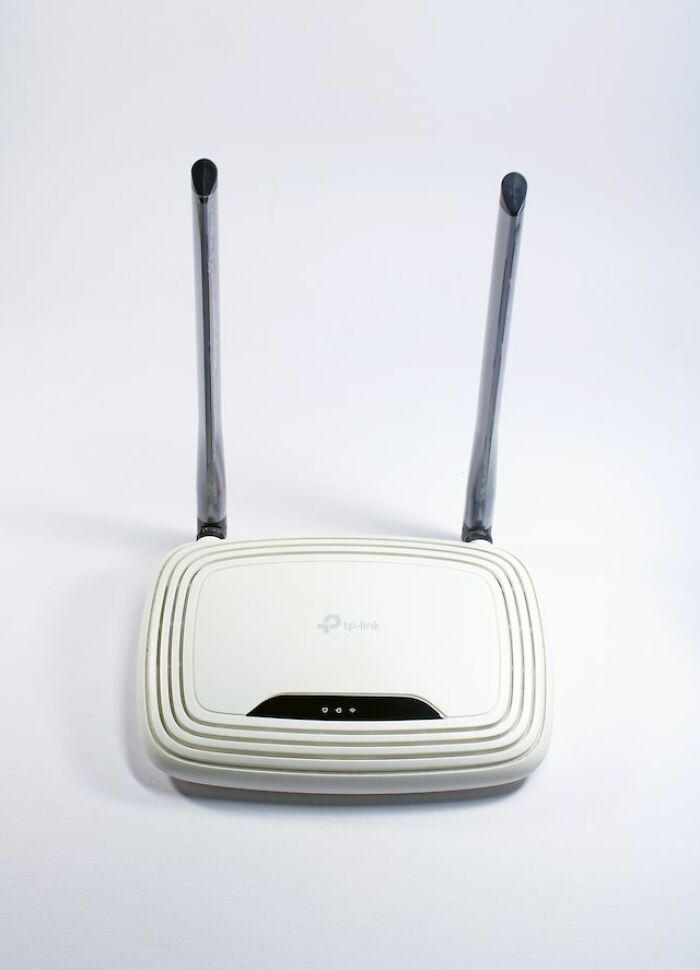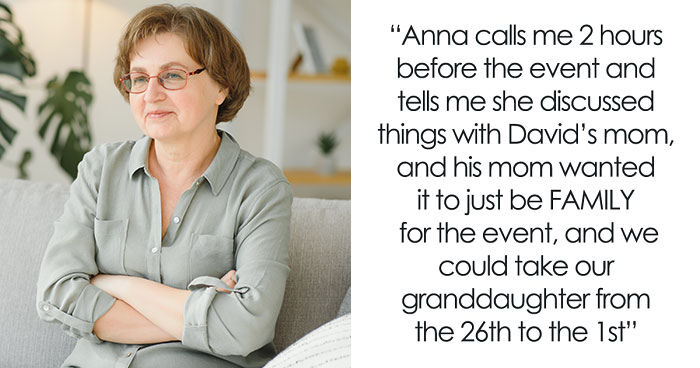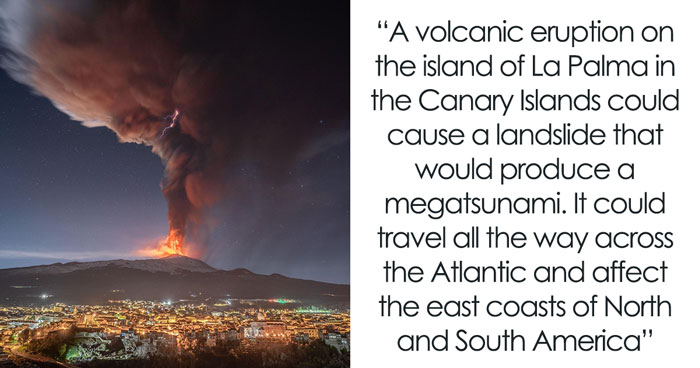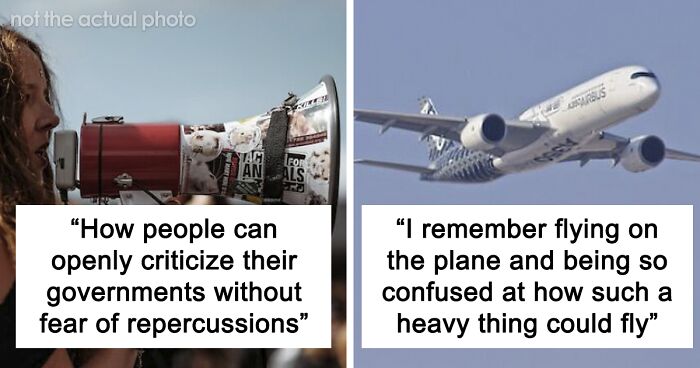
30 People Who Left Third-World Countries Share What Surprised Them The Most About First-World Countries
There are 195 countries on the planet, and they’re all unique. That’s why when a person makes a drastic move from one nation to another, they’re guaranteed to experience some culture shock. Finding your favorite products at the grocery store can turn into a monstrous task, and learning how to communicate with the locals can make you feel like an alien. But these culture shocks can be even more prominent when a person's home country is halfway across the globe or has a vastly different GDP.
A couple of curious Reddit users reached out asking people who have relocated from developing nations to more industrialized nations what came as a shock to them, and readers were very honest about the surprises they encountered. Below, you’ll find a list of some of the most fascinating responses, as well as interviews we were lucky enough to receive from Malaysian writer U-Ming Lee and travel blogger and founder of The Roving Heart, Raksha Rao.
Be sure to upvote the responses that you agree with, or that introduced a new perspective to you, and let us know in the comments if you too have experienced moving from a lower income nation to a more affluent country. Then, if you’re interested in reading another Bored Panda article discussing the culture shock one person experienced after moving from India to the United States, you can find that right here!
This post may include affiliate links.
 Moved from Brazil to England.
Good thing - How clean and organised things are, places just look complete, streets are well kept and safe. Public transport very reliable. Even the worst gov. scandals aren’t that bad. Things just work and you can trust people. When people get murdered it makes huge news.
Bad thing - People born here not realising their privilege. Fast fashion? What is that, buying stuff to wear once? Being afraid to reheat food or eat something 1 day out of date, leading to so much food waste. Not looking after the items they have because it’s cheap and easy to buy again, it drives me insane the way people treat their belongings, they get ruined so quickly (consumerist thinking I guess).
Moved from Brazil to England.
Good thing - How clean and organised things are, places just look complete, streets are well kept and safe. Public transport very reliable. Even the worst gov. scandals aren’t that bad. Things just work and you can trust people. When people get murdered it makes huge news.
Bad thing - People born here not realising their privilege. Fast fashion? What is that, buying stuff to wear once? Being afraid to reheat food or eat something 1 day out of date, leading to so much food waste. Not looking after the items they have because it’s cheap and easy to buy again, it drives me insane the way people treat their belongings, they get ruined so quickly (consumerist thinking I guess).
To gain more insight on this topic, we reached out to U-Ming Lee, a writer originally from Malaysia who has experience living in and traveling to various other parts of the world. We were curious where he's living now and why he decided to leave Malaysia in the first place. "I'm back in Malaysia right now, although I've just returned from a 10-month stint in Bangkok, Thailand," U-Ming told Bored Panda. "I don't plan to be 'settled' in the conventional sense in the near future. I thought I would slow travel full-time in the next few years until I've figured out where (and how) to settle. But I've concluded that Malaysia is not the country I'd like to live in."
"Growing up in Malaysia, I was always an avid consumer of American and British media," U-Ming shared. "So, I've always been keenly aware that living in a developing country means that you will always get to have the latest 'stuff' after the trend's already died down elsewhere. When I was a kid, this meant that the latest consoles or games would only arrive six months to a year after they'd been released in the US. This was frustrating but not a deal-breaker."
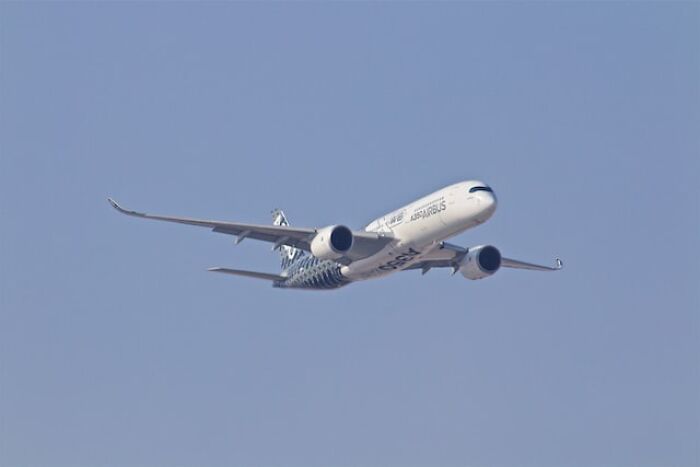 Let me tell you a story. For the first few years of my life I lived in a rainforest in a little leaf hut with my grandmother. No electricity, no running water, no cars. It was literally a rainforest and I had no idea what the outside world was like. My father who lived in Australia (he was deported from my country because my family didn't like him) then decided that at 7 I would have to come to Australia for my education. The whole experience was surreal to me. I remember flying on the plane and been so confused at how such a heavy thing could fly. Even the lights were amazing to me. Turning them on and off was like magic to my mind. When I landed in Australia my father asked me if I wanted a drink of water and my reply was, 'there doesn't seem to be a river anywhere near by, so how are we going to get it?'. My dad then showed me a tap and my mind was blown. Where was the river where this water was coming from? The refrigerator also blew my mind. In the village if we had meat we would eat it immediately otherwise and here was this magic machine that preserved it. He later asked if I wanted to go to the grocery store to get food for dinner. I replied with 'You don't have to grow your own food?'. My dad chuckled and we went to the grocery store. I was amazed. Most of these foods I had never seen in my life and there was so much of it! Also, I could eat any meat I wanted! I could keep going on with things that amazed me, but really there were so many.
Let me tell you a story. For the first few years of my life I lived in a rainforest in a little leaf hut with my grandmother. No electricity, no running water, no cars. It was literally a rainforest and I had no idea what the outside world was like. My father who lived in Australia (he was deported from my country because my family didn't like him) then decided that at 7 I would have to come to Australia for my education. The whole experience was surreal to me. I remember flying on the plane and been so confused at how such a heavy thing could fly. Even the lights were amazing to me. Turning them on and off was like magic to my mind. When I landed in Australia my father asked me if I wanted a drink of water and my reply was, 'there doesn't seem to be a river anywhere near by, so how are we going to get it?'. My dad then showed me a tap and my mind was blown. Where was the river where this water was coming from? The refrigerator also blew my mind. In the village if we had meat we would eat it immediately otherwise and here was this magic machine that preserved it. He later asked if I wanted to go to the grocery store to get food for dinner. I replied with 'You don't have to grow your own food?'. My dad chuckled and we went to the grocery store. I was amazed. Most of these foods I had never seen in my life and there was so much of it! Also, I could eat any meat I wanted! I could keep going on with things that amazed me, but really there were so many.
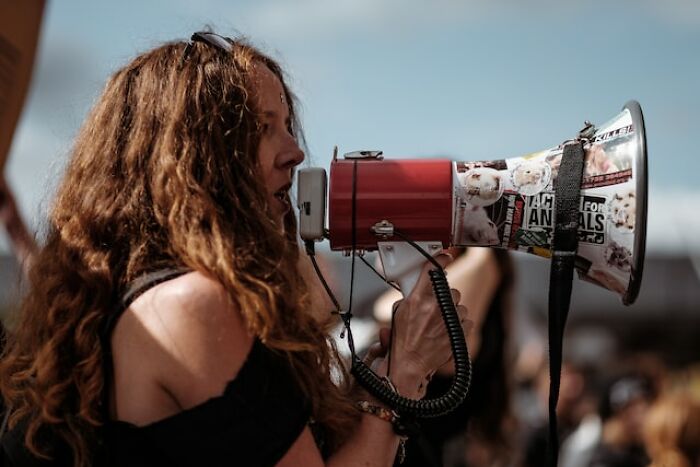 How people can just openly criticize their governments without fear of repercussions. I always thought it was incredible that there were so many late night hosts who would talk c**p about politicians and wouldn’t be in any danger with the law? If I tried even a fraction of what they said, I’ll be having a very interesting time with the police.
How people can just openly criticize their governments without fear of repercussions. I always thought it was incredible that there were so many late night hosts who would talk c**p about politicians and wouldn’t be in any danger with the law? If I tried even a fraction of what they said, I’ll be having a very interesting time with the police.
I can confirm. In some countries, or at least in Iran, it is inside the constitution, the rewrite performed by the clergy in ‘79. Honestly, looking back, this is why you don’t hear too much about the problems in third world countries, because if the people dares speak out, they would be hunted down by the police. I know one man, the man that wrote the song “Baraye” on Insta, got arrested by the morality police for writing that song, but once it got leaked onto the internet, they had to let him go.
What finally pushed U-Ming to decide to leave Malaysia was his father's diagnosis with cancer in 2017. "As his chemo treatments progressed, the nerves in his hands and feet were increasingly damaged. This greatly affected his quality of life, so I looked for ways to help him cope with his condition," he shared. "Ordinarily, families would look for occupational therapists to help the patient deal with his growing physical challenges and mental support services to cope with the emotional roller coaster. But in developing countries like Malaysia, these services are practically impossible to access, so whatever limited services exist are highly backlogged. The only thing my mum and I could do was to lend an ear."
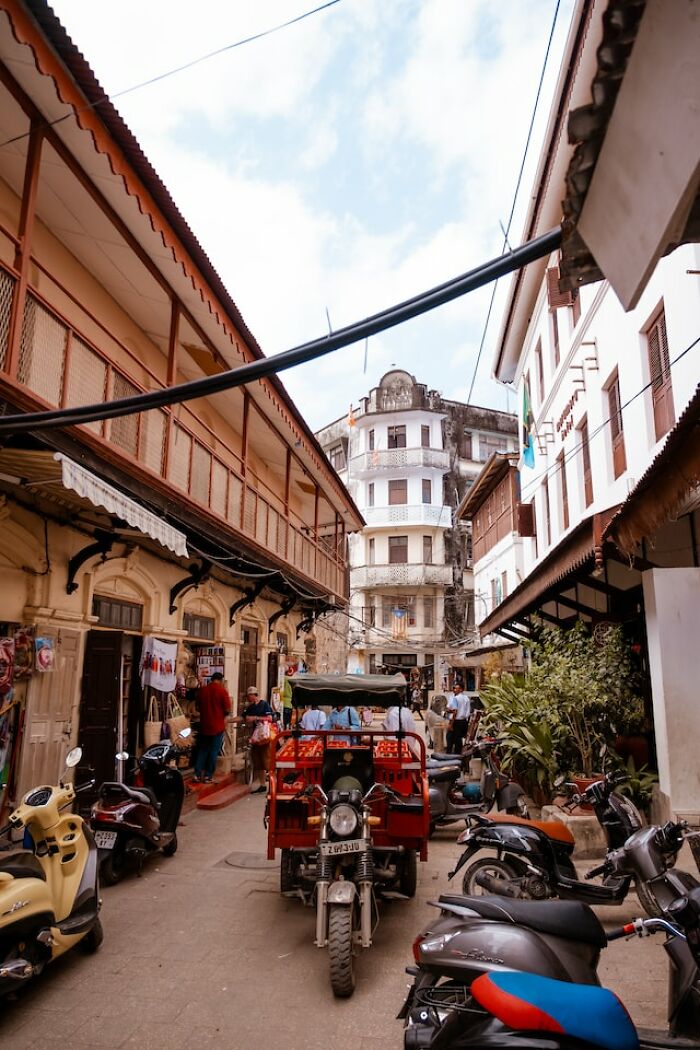 That some parts of the 1st world are still 3rd world
That some parts of the 1st world are still 3rd world
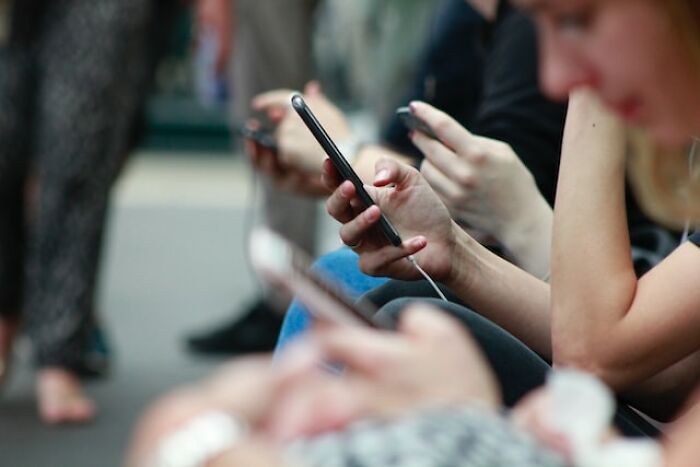 Being able to use a cellphone/laptop in public and not getting mugged for it.
Walking alone and not getting mugged.
Just.. not getting mugged in general.
Edit: To the 1st world country ppl saying “well, that’s cause you haven’t been to ‘x’ place!”. I realize that some places in your country are shady/dangerous. But they are shady/dangerous compared to your understanding of reality. A “dangerous” 1st world peace is the equivalent of a safe 3rd world place.
Like... why do you feel the need to try and compete?
Im not being cute when I say “being mugged”. If I sat down my entire extended family (cousins etc) and asked “who’s been mugged”, almost every single person (out of 50ish) would raise their hand. Some of which have been mugged multiple times. Many of which we’re mugged at gun point.
It’s not an “occurrence”, it’s the *rule*.
You’ll never understand what a 3rd world country is like. Be happy you won’t.
Being able to use a cellphone/laptop in public and not getting mugged for it.
Walking alone and not getting mugged.
Just.. not getting mugged in general.
Edit: To the 1st world country ppl saying “well, that’s cause you haven’t been to ‘x’ place!”. I realize that some places in your country are shady/dangerous. But they are shady/dangerous compared to your understanding of reality. A “dangerous” 1st world peace is the equivalent of a safe 3rd world place.
Like... why do you feel the need to try and compete?
Im not being cute when I say “being mugged”. If I sat down my entire extended family (cousins etc) and asked “who’s been mugged”, almost every single person (out of 50ish) would raise their hand. Some of which have been mugged multiple times. Many of which we’re mugged at gun point.
It’s not an “occurrence”, it’s the *rule*.
You’ll never understand what a 3rd world country is like. Be happy you won’t.
Yes, be very happy. Even as kids, you could hear about your parents talking, saying such and such was taken into custody, or a crowd was killed yet again in a peaceful protest. I remember my grandmother once talking about her friend being taken into custody and the police spraying pepper spray into her throat, for some reason i can’t remember. It is hell.
"Towards the end of his life, as my dad's physical state deteriorated, we exhausted ourselves looking for hospice or palliative care services, hospital beds, and breathing support apparatus to keep my dad comfortable," U-Ming told Bored Panda. "Once again, this was way harder to access than it would have been in a developed country. I realised my dad suffered towards the end of his life because no resources were available to ease his suffering in my country. It didn't matter how much money one had, these resources are so rare that the vast majority of ordinary people will never be able to access them."
"So, my most potent reason for moving is the fear that, as I age (I'm 43 now), I face the growing risk of ending up suffering as my dad did."
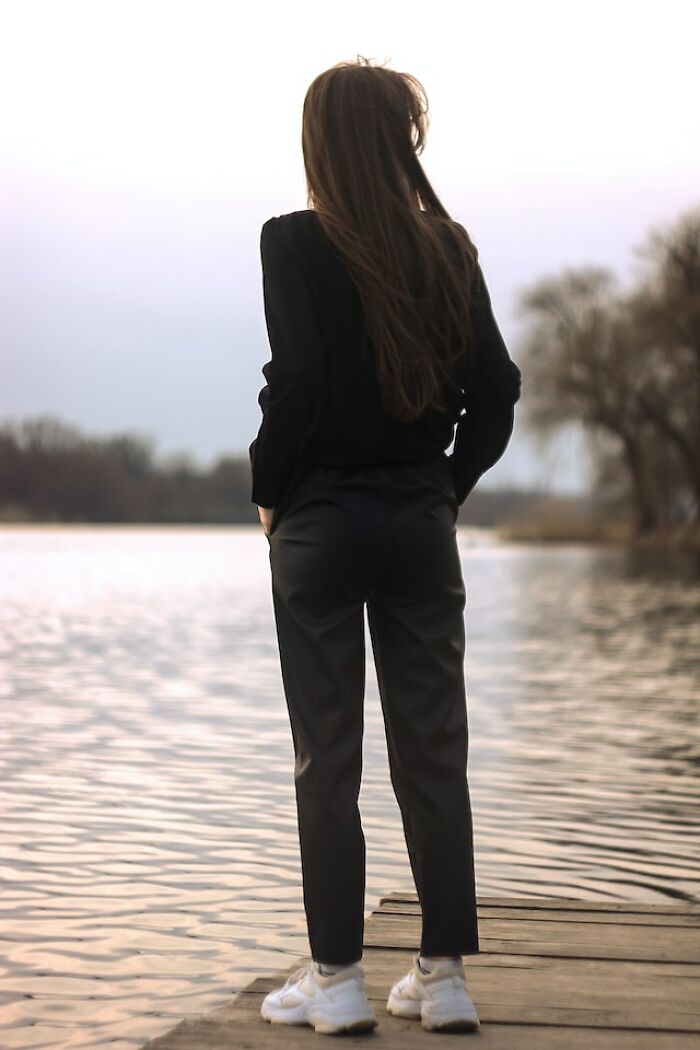 The people. There is an obsession with identity and people thinking they have it so bad. I have seen people murdered and left in streets. I come to the states and aunt Jemima hurts peoples feelings. I don’t understand why people aren’t happy to live such a privileged life
The people. There is an obsession with identity and people thinking they have it so bad. I have seen people murdered and left in streets. I come to the states and aunt Jemima hurts peoples feelings. I don’t understand why people aren’t happy to live such a privileged life
Because privelage is relative. Seeing dead bodies in the street doesn't mean everything LESS horrible is good or neutral. When people don't spend every waking second focusing on physical safety, they have room for focusing on things like feelings. Nobody is protesting in the streets about Aunt Jemima, maybe don't be so sensitive and let people have feelings about certain things?
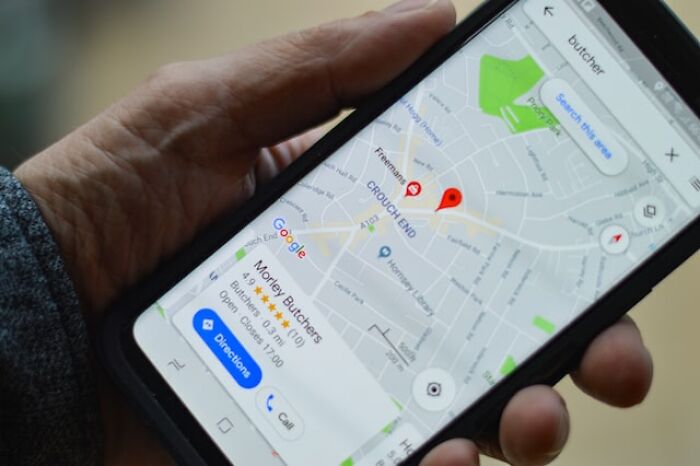 Actual addresses. I can just use Google maps to find a location and have INSTRUCTIONS on how to get there. I can even receive mail! Mind-blowing.
The amount of food that goes to waste and also how much plastic there is in supermarkets. Everything comes wrapped and only the "perfect" produce is displayed. Going to a supermarket in general is a whole experience: so many brands, so much variety. Incredible.
The most important for me: feeling safe. I can have my phone in my hand by walking down the street. I can walk on my own, at night. I can trust a cop if something happens. People actually stop and help you if you need help. Just feeling like I'm not going to get killed, robbed or raped is great.
Actual addresses. I can just use Google maps to find a location and have INSTRUCTIONS on how to get there. I can even receive mail! Mind-blowing.
The amount of food that goes to waste and also how much plastic there is in supermarkets. Everything comes wrapped and only the "perfect" produce is displayed. Going to a supermarket in general is a whole experience: so many brands, so much variety. Incredible.
The most important for me: feeling safe. I can have my phone in my hand by walking down the street. I can walk on my own, at night. I can trust a cop if something happens. People actually stop and help you if you need help. Just feeling like I'm not going to get killed, robbed or raped is great.
"Just feeling like I'm not going to get killed, robbed or raped is great." My God, I hope things get better in your homeland, too.
We also asked U-Ming if he ever experienced intense culture shock when traveling or living in another country. "Besides Malaysia, I've lived in the UK, the Netherlands, Thailand and made short trips to the USA, China, Taiwan, France, and Spain," he told Bored Panda. "After my first extended trip, i.e., from Malaysia to the UK, surprisingly, I can't say I've ever experienced culture shock in a big way. Sure, there are little surprises, like how people in Spain have dinner late, or how you can't flush toilet paper down the toilet in most places in Thailand and Taiwan."
"But I've not had anything major, probably because I've always tried to understand the culture of the country I'm visiting as much as possible until I arrive there," U-Ming shared. "Of course, there are things I'll never fully understand, like the obsession with cricket in the UK or college football in the US," he added with a smile.
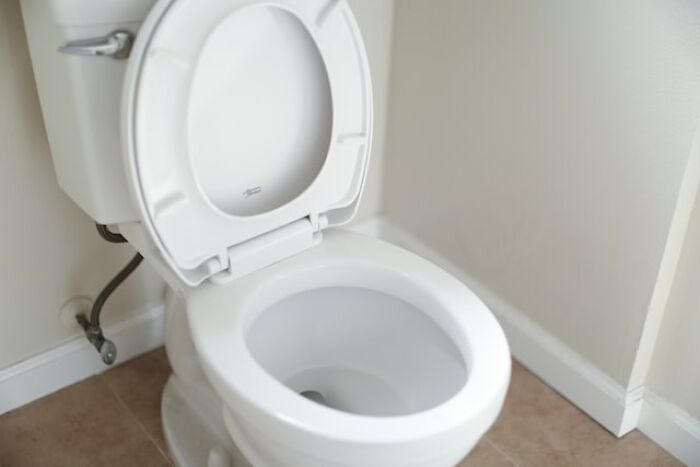 Not me but from a friend
"you have so much clean water that you even s**t in it"
Not me but from a friend
"you have so much clean water that you even s**t in it"
Sadly true. Where I used to work tried using “grey water” to flush toilets (I.e water that had already been used to wash dishes etc) but everyone complained that it made the toilet seem dirty. People are repulsed by dirty toilets.
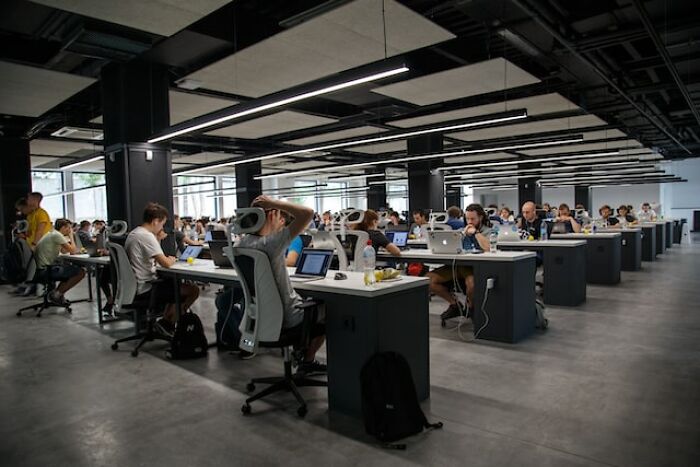 How much of life is centered around working.
In Latin America, family comes first. People work to live, they don't live to work. In the US, people will literally uproot themselves from their community and move across the country because their employer told them to.
How much of life is centered around working.
In Latin America, family comes first. People work to live, they don't live to work. In the US, people will literally uproot themselves from their community and move across the country because their employer told them to.
I want to offer a different perspective. I come from Asia where work is placed above many things. It's a privilege to have a job, especially one that is in an air conditioned office - instead of having to beg on the street, collect trash, sell vegetables at the market, or do manual labour. If you get offered a job, you're able to provide for your family and you would do pretty much anything - uprooting a family isn't seen as a sacrifice but an opportunity to travel & experience, and therefore a perk rather than a curse. Moving abroad? People dreamed about it. Growing up in Europe I often heard my parents complaining about how lazy westerners were. Strictly 9-5 and no more than that, plentiful of holidays, entitlements, legal protection etc. Not saying things are better or worse than Asia, but there are places where having a job is a privilege.
When it comes to misconceptions about developing and industrialized countries, U-Ming told us he could write an entire book on the topic! "The most obvious one is the misconception that people in developing countries live in trees, buffalo roam the unpaved streets, and everyone works in subsistence farming," he shared. "Of course, that misconception gets dispelled as soon as someone steps out the airplane."
"However, I think there is the tendency for people to go the complete other way and assume that, just because there are gleaming malls and modern public transportation in cities like Bangkok or Kuala Lumpur, the developing countries are just the same as the industrialised countries," he added.
"This misconception leads influencers to promote living in developing countries as a gateway to an improved quality of life for a fraction of the cost in the industrialised world."
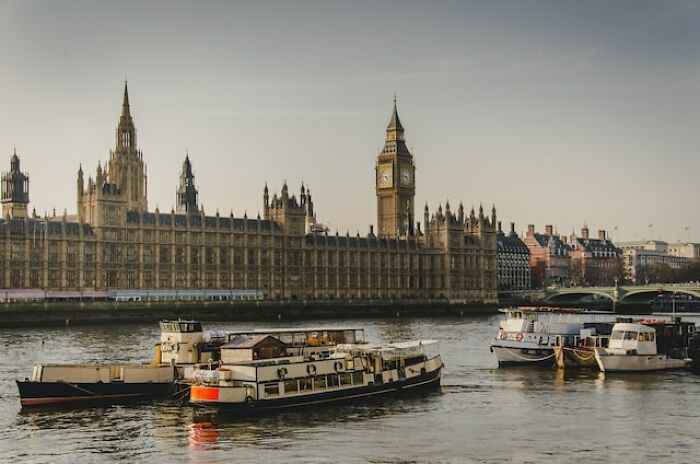 I’m from Asia and living in the uk. Was surprised about the social responsibility towards the environment, rivers were generally clean and well maintained. That and people didn’t have bowler hats and no one traveled via horse carriage like the tv said
I’m from Asia and living in the uk. Was surprised about the social responsibility towards the environment, rivers were generally clean and well maintained. That and people didn’t have bowler hats and no one traveled via horse carriage like the tv said
Yes. More about the first part than the second 😂, but still. In a barely surviving country, environmental problems wer never on anyones mind. Air pollution, sewage, littering. In Tehran, you could barely see the horizon there was so much smog, and that was considered a “clear” day.
10yrs ago I arrived in Australia. The first thing I notice is the smell. It's so fresh, it's nothing like I ever smelt in the first 18years of my life. It smells like freshly showered - baked - bloomed flowers. I can't even describe it. It smells earthy good. I'm from the Philippines.
A properly functioniing well designed sewer system, as found in most 1st world countries, is the biggest contributor to this. By removing all the waste to underground mostly well sealed pipes, a lot of the lingering stench of sewage/decomposition is eliminated. I've worked in parts of West Africa with open sewage in the streets, and it was horrendous. The public health impacts were significant. We may use clean water in the west to flush waste away, but that's a tiny price to pay (water recycles quite well apparently) for the health and comfort benefits it brings. Being able to shower daily and wash away potentially life threatening common bacteria like Cancrum Oris (can be common in 3rd world settings) with clean water and soap is also literally a life saver. When you've seen someone suffering from a flesh eating bacteria that can be solved by just regular washing with soap and water, you'll thank your lucky stars if you were born in a country with good sanitation and clean wate
U-Ming added that there are a few caveats to the idea that living in a developing country can be an easy way to live luxuriously on low costs. "Things are frequently less expensive because they are poorer quality," he told Bored Panda. "Everyone knows that you can fill up on authentic street food in Bangkok for $2-3 a meal. But people don't always consider the compromises it takes to make it economical for the vendor to sell fried noodles for $2, e.g. the re-used oil, the processed meats that may be more filler than meat, the vegetables grown with pesticides banned in the West, and so on."
U-Ming explained that it is harder to be productive in a developing country as well. "Water and electricity cuts will be more frequent than one is used to in an industrialised country. The infrastructure is less well-developed and well-planned, so you will find yourself stuck in traffic congestion more than you're used to. Digital nomads working for clients in the West could find the time zone differences challenging to deal with. Individually, these sound like minor issues, but they add up over time."
 My mother was most shocked at the sheer number of privileged people who shun grade school education and are proud of it, eventually morphing into anti vaxxers and flat earthers.
Meanwhile in her day she often had to choose between eating and paying for the bus ticket to school. In many cases, food won, so she'd blister her feet walking to school in worn out shoes. Yet in the West people get K-12 education guaranteed for free with free school buses and free meals for the lower income students, and they're total ingrates about it.
My mother was most shocked at the sheer number of privileged people who shun grade school education and are proud of it, eventually morphing into anti vaxxers and flat earthers.
Meanwhile in her day she often had to choose between eating and paying for the bus ticket to school. In many cases, food won, so she'd blister her feet walking to school in worn out shoes. Yet in the West people get K-12 education guaranteed for free with free school buses and free meals for the lower income students, and they're total ingrates about it.
And it happens to be the ones without the privilege who understand what is good for them, strangely. My Mum has had a strict ' no plastic bags to be taken from the grocer while buying groceries' policy for as long as i can remember, and whenever she tried to explain it to a grocer whose probably had 0 education( hellthey don't own a cellphone coz they don't have the resources to buy and lean to use one), the latter said that they know Plastic is bad, but the Rich, educated customers won't buy a single, teeny-tiny Chilli if they don't give them free Plastic bags. these rich guys were also the first ones to start moaning when the central Government imposed an immediate ban on Plastic. Mind you, these guys are making 2- 20 lakh(0.2-2 million) a month.
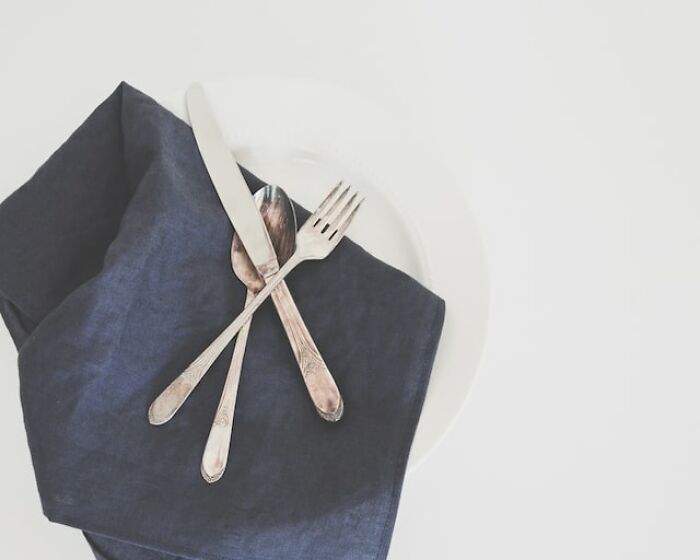 How many things are free.
Like cups, plastic utensils, condiments, matches, napkins. You can go to a gas station and ask for matches and they will give them to you...for free. Community dinners. Random donuts brought into the office. Pizza. Random lunches. People offering you free rides. etc etc. Foodbanks. So many things are just given to you if you know how to look. Perfectly good couches left on the street. Desks. etc Go to the free section on craigslist to see what I mean.
The whole "pick a penny, leave a penny" thing blows my mind til today. Free money...can you imagine that? People are literally leaving money for other people just because of the "inconvenience of change". It's mind boggling.
How many things are free.
Like cups, plastic utensils, condiments, matches, napkins. You can go to a gas station and ask for matches and they will give them to you...for free. Community dinners. Random donuts brought into the office. Pizza. Random lunches. People offering you free rides. etc etc. Foodbanks. So many things are just given to you if you know how to look. Perfectly good couches left on the street. Desks. etc Go to the free section on craigslist to see what I mean.
The whole "pick a penny, leave a penny" thing blows my mind til today. Free money...can you imagine that? People are literally leaving money for other people just because of the "inconvenience of change". It's mind boggling.
"Some people will find it harder to make a living in a developing country," U-Ming explained. "A digital nomad friend who is a yoga teacher found it difficult to run her business in Chiang Mai, Thailand, because there weren't many locals who could afford her services. This is less of a problem for digital nomads who sell services that can be delivered completely online, for clients in the industrialised world. I've freelanced as a market researcher for more than a decade by producing research reports; naturally, all my clients have been from developed countries (the US, UK, and Japan)."
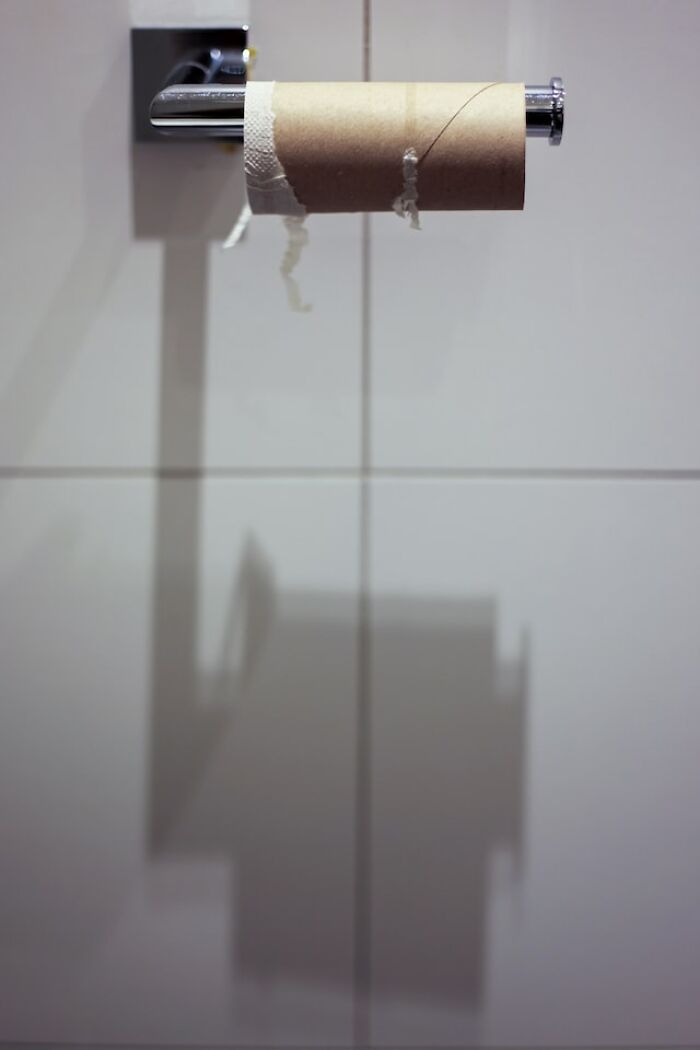 First time I traveled to the UK, I prepared for everything...vaccinations, local contact numbers, things to do in case of emergencies, back up money in plastic so that I don't get mugged, some home food/spices which I assumed won't get in the UK, an electric rice cooker.. thought I had it covered.
Landed in Heathrow and went to the washroom. That's when I realised I didn't teach myself how to use toilet paper.
First time I traveled to the UK, I prepared for everything...vaccinations, local contact numbers, things to do in case of emergencies, back up money in plastic so that I don't get mugged, some home food/spices which I assumed won't get in the UK, an electric rice cooker.. thought I had it covered.
Landed in Heathrow and went to the washroom. That's when I realised I didn't teach myself how to use toilet paper.
I spent some time in Japan, and no two washrooms appeared to be the same. When I returned to the UK it was as though a great weight was lifted when I walked into a bathroom and knew which buttons did what!
I lived in a first world country for a short while, and the differences were both subtle and striking. I went as a kid, and the most shocking thing to me was how beautiful everyone was. Back then, their pale skin, light hair and eyes were my beauty standard, which I obviously couldn’t fit lol. There were so many foods I would never be able to have in india except if I had gone a little far away to a high class restauran. One big thing that stood out to me in terms of food differences were all the salads there... I had never had a salad before, as where I live in india, there is no lettuce available and most vegetables have to be cooked to be safe to eat. I had never tasted fresh vegetables. the cleanliness and sanitation too, was extremely noteworthy. Outside my campus, the roads are strewn with garbage and rubbish, and the roads and filled with people and they are very loud. We don’t have too many traffic lights either. In Australia, the roads were abnormally clean to me, and everything just looked so *bright.* Also the prevalence of makeup and short clothes... in india, even now I get scared to wear any bottoms that arent full pants. I now wear more “western” clothes (shirt and pants/jeans) and am sometimes told how inappropriate they are. I don’t wear skirts or shorts outside, and me and all my friends agree that going outside on the streets is terrifying, and we have never been there except with our parents/family. The closest thing I see to makeup here is lipstick and extremely thick and poorly drawn eyeliner lol, as well as white white powder to make their faces ”fair”. To see people in Australia wear short and even skimpy clothes was both shocking, and comforting at the same time... im still young, so these differences aren’t super political or well put together. Just what I noticed through the eyes of a child.
The but about being white made me sad. I understand it's from a child's perspective but it's sad to think that racism is making children feel ugly for not being white
And when it comes to misconceptions he's observed about industrialized countries, U-Ming first noted that he writes about this from the perspective of someone from a developing country who lived in industrialised countries for 15 years. "People from developing countries view the industrialised world as the 'land of opportunity' where the roads are paved with gold."
"Naturally, this isn't the case," he added. "More precisely: Being an entrepreneur in the developed world is harder than in developing countries. You can't just set up a street food stall somewhere like London or Amsterdam and make a living that way. There are way more regulations and codes to comply with, and all manner of licenses and certificates you need to obtain before you can get started, unlike in the developing world."
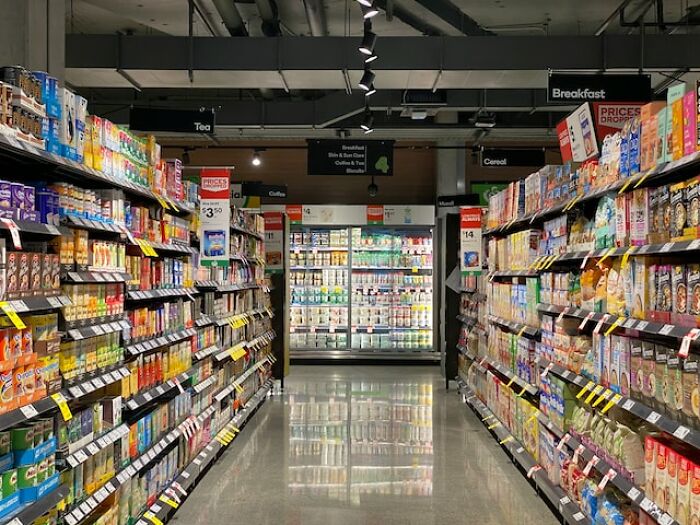 A lot of my family are blown away by supermarkets. Where they're from, you have to wait in lines for hours to get to the grocery store and there's no guarantee they'll actually be food once you get to the front of the line.
On a lighter note, they're also really surprised by how common lawns and yards are and hate them with a passion. According to them, they're useless, take up valuable space, and are far inferior to courtyards.
A lot of my family are blown away by supermarkets. Where they're from, you have to wait in lines for hours to get to the grocery store and there's no guarantee they'll actually be food once you get to the front of the line.
On a lighter note, they're also really surprised by how common lawns and yards are and hate them with a passion. According to them, they're useless, take up valuable space, and are far inferior to courtyards.
"People in the developed world care about a lot of things," U-Ming noted. "There's a misconception that life in the developed countries is so structured that people are always busy. I've found that people in industrialised countries care about (or, at least, think about) issues like climate change, animal rights, or gender equality (for example) a lot more than in developing countries. This is not to say that people in developing countries don't think about these things - they do - but, by and large, most people are too occupied with day-to-day survival to spend much time and energy dealing with these broader issues."
South Africa to Ireland. People don't have barred windows or security gates. I found it quite uneasy to sleep the first few months considering I have been tied up and robbed at gunpoint in Joburg which of course was not my first robbery but my 13th but my first time being tied up at gunpoint... I probably have a higher chance of winning the lotto than getting tied up in Ireland. Whereas in South Africa I have a far higher chance of being tied up at gunpoint than winning the lotto.
True, it isn't often that one gets tied up in Ireland these days. But if you know the right people, they can direct you to certain private establishments where this can be easily arranged.
You have heard the phrase ‘death by a thousand cuts’? Well it is the reverse of that. Everything is a little bit easier and it is the sum of the parts. 1 - Water. Turn on a tap and you can drink it. Boiling and filtering water to make it safe to drink and use in cooking takes about an hour each day. 2 - Food. You can eat what you want, when you want. Not because it is the only thing available or the only thing you trust not to make you sick. 3 - Room temperature. It is so much easier to keep your house a comfortable temperature and get a good night’s sleep. 4 - Travel. You can rely on the fact you can get where you want to go when you want to get there. The infrastructure is reliable. 5 Stability. You won’t turn on the world service and find out that there has been a complete change of government overnight and troops are on the street to make sure no one protests. 6 Lack of corruption. As hellish as getting through to a local government department you can get what needs to be done without bribing anyone.
Finally, we asked U-Ming if he has a favorite place in the world that he's lived in. "For me, this has undoubtedly got to be London, England, where I lived for 3 years," he shared. "The experience that speaks the most to me was getting on the London Underground and hearing 7 languages being spoken around me, none of which was English."
"The sheer diversity of people and cultures that I encountered daily in London for those three years permanently expanded my perspective of life and made me appreciative of vastly different perspectives," he told Bored Panda. "Living in London is probably what contributed the most to me not suffering from culture shocks whenever I move to a new country these days!"
If you'd like to hear more wise words from U-Ming Lee, be sure to check out his writing on Medium right here!
My uncle joined the Peace Corps and lived in Tonga (tiny island in the Pacific) for two years. One of his friends from his time there went on a trip to the US and my uncle met her in LA. Anyhow, they got into a cab at the airport and my uncle said that his friend had this terrible look of anxiety on her face and just kept looking around; her head was just darting around every which way. He asked if everything was alright and she said she was waiting for the high-speed chases, gunfire, and explosions. My uncle had to explain that those sort of things typically only happen in the movies. For her the only window into the world outside Tonga was movies she had seen. It's interesting how media, or the lack thereof, can shape someone's perceived reality of the world.
This is what you get from watching hollywood only. You'd also get the impression that everyone in the states had an immense wooden house with at least four bedrooms, at least two new cars which are very large, etc.
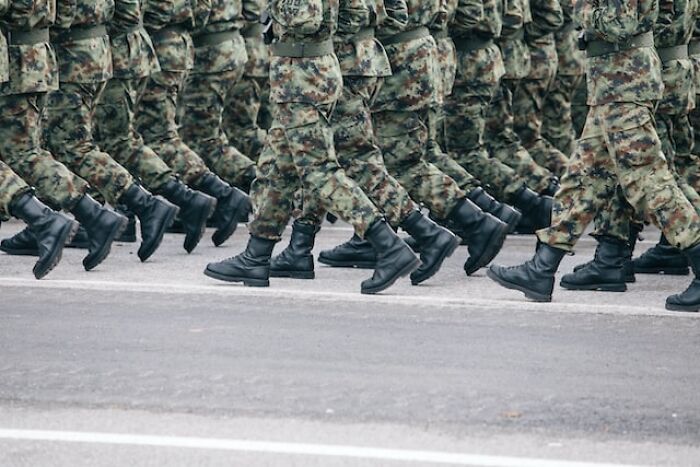 my dad was very surprised the military doesn’t force you to join or have random groups to kidnap for their own military groups! also my cousins were surprised helicopters can be used for things other than weapons!!
edit: america is not perfect but i’m happy we don’t have to endure the harsh reality of war & can escape it. :)
my dad was very surprised the military doesn’t force you to join or have random groups to kidnap for their own military groups! also my cousins were surprised helicopters can be used for things other than weapons!!
edit: america is not perfect but i’m happy we don’t have to endure the harsh reality of war & can escape it. :)
We also reached out to travel blogger and founder of The Roving Heart, Raksha Rao, to hear her thoughts on this topic. As someone who has traveled all over the world, we were curious if anything stood out to Raksha as shocking, in either developing or industrialized nations. "As I've traveled to different countries around the world, I've been struck by the incredible hospitality I've experienced in impoverished areas around the world," she shared.
"From Tajikistan to Cambodia, where life can be tough and challenging, I've found the locals to be incredibly welcoming and hospitable," Raksha told Bored Panda. "Despite facing their own struggles, these people seem to go out of their way to make visitors feel welcome and cared for. It's a truly remarkable phenomenon that has always left a lasting impression on me."
Running water 24/7. Electricity - almost no power cuts. I've been here 7 years, maybe one power cut for 5mins. Back home, it was 2-3hours of power cut on a regular basis. Traffic, so organized and easy to follow. AC/heat - atleast where I live. For people who are saying the locals are finding problems to occupy themselves, it's true. I call it 'privilege drunk', you can never truly appreciate things you have if you are born in it, you have to see the dark side to appreciate the nice things. This leads to locals being entitled because privilege is the normal for them.
Often times a person doesn’t realize how much they have. Until they don’t. With retirement it’s now about needs, not wants. I’ve found I don’t really need all the stuff I had. Way too much. Planned what was NEEDED for a wardrobe. I live by myself and rarely invite people over. (Loner). How many dishes etc do I NEED. I now have a washer/dryer. I just take the sheets off, wash them and put them back on the bed. You’d be surprised how well you can do and be happy on what you NEED.
 The toothpaste aisle. There is an aisle for toothpaste. It's been almost 25 years, and that still boggles my mind
The toothpaste aisle. There is an aisle for toothpaste. It's been almost 25 years, and that still boggles my mind
Allergic to peppermint. A whole aisle of toothpaste and all the darn toothpastes have peppermint in.
We also asked Raksha if anything has ever disappointed her in industrialized nations. "One of the things that have consistently disappointed me when visiting more industrialized nations, such as the United States, is the sheer amount of resource waste that exists," she noted. "It's almost as if there is an abundance of everything, which leads to a culture of overconsumption. Whether it's electricity or plastic consumption, it's clear that there is a lack of consideration for the long-term sustainability of our planet and its resources."
 I remember being pulled over for speeding and my uncle who just got here was like just give him $5 bucks and I told him that's not how it works here, lol
I remember being pulled over for speeding and my uncle who just got here was like just give him $5 bucks and I told him that's not how it works here, lol
 Laws and regulations actually mattered in first world countries
Laws and regulations actually mattered in first world countries
Finally, we asked Raksha if she could share about her favorite place in the world that she's ever traveled to. "There's one that holds a special place in my heart: a small village called Faja Grande on the island of Flores in the Azores archipelago," she told Bored Panda. "I had the opportunity to volunteer there for two weeks, and it was hands down one of the most beautiful and peaceful places I've ever visited."
"Every morning, I would wake up to the calming waves of the ocean and walk just 10 minutes to a stunning waterfall," Raksha shared. "No matter where I pointed my camera, the scenery was breathtaking. But it wasn't just the natural beauty that made Faja Grande so special to me - it was also the people. I met so many expats who had fallen in love with the island and decided to make it their permanent home. It truly felt like a slice of heaven on earth."
If you'd like to learn more about Raksha's incredible world travels, be sure to visit her website The Roving Heart right here!
 The fact houses came complete.
I come from Brazil, there the houses come all empty when you buy them, no kitchen, laundry, anything. You have to buy everything. I’m not sure if this is changed or not since I’ve moved to America a long time ago.
Another thing, safety. I almost died twice in Brazil and my mother couldn’t use her cellphone or calmly walk out of a bank or even drive with her purse out in the next seat, everything had to be hidden or you could be robbed or even killed. Whenever I go to Brazil to visit I always get tense and I get panic attacks because of the violence, also didn’t help the fact that I lived in one of the most, if not the most violent state
The fact houses came complete.
I come from Brazil, there the houses come all empty when you buy them, no kitchen, laundry, anything. You have to buy everything. I’m not sure if this is changed or not since I’ve moved to America a long time ago.
Another thing, safety. I almost died twice in Brazil and my mother couldn’t use her cellphone or calmly walk out of a bank or even drive with her purse out in the next seat, everything had to be hidden or you could be robbed or even killed. Whenever I go to Brazil to visit I always get tense and I get panic attacks because of the violence, also didn’t help the fact that I lived in one of the most, if not the most violent state
In South Africa homes don't come complete either. You take your appliances with you when you move. Safety is also a problem here. You have to hide your bag under the seat or put it in the boot otherwise someone will do a smash-and-grab when you stop at the robots. This last term (October to December; our schools run from Jan to Dec with holidays in between) a teacher was mugged right at our school's gate by someone who tried to take her cellphone. Luckily for her she froze up and he couldn't pry the phone out of her hand (and there were parents and kids around so to do more would have been difficult). When the pandemic started, a teacher was phoning parents (at our school we call parents if the child hasn't been fetched within 1/2 an hour; it's too dangerous to leave them outside alone) and she had that ring on the back of the phone with her finger through it. A guy strolled up and pulled the phone from her hand so hard that she had to get medical attention.
Are you feeling like you'd experience quite a bit of culture shock if you moved to a developing nation? Keep upvoting the responses that resonate with you or that introduce you to a new perspective, and feel free to share your thoughts on this topic down below. Then, if you're interested in reading another Bored Panda article discussing culture shocks people from developing countries experienced when visiting industrialized places, you can find that right here!
 Social safety nets (Canada), not a huge difference in the services available in a small town vs a big city, how well pets are treated here.
Social safety nets (Canada), not a huge difference in the services available in a small town vs a big city, how well pets are treated here.
someone once said that a society can be judged by how well it treats its animals.
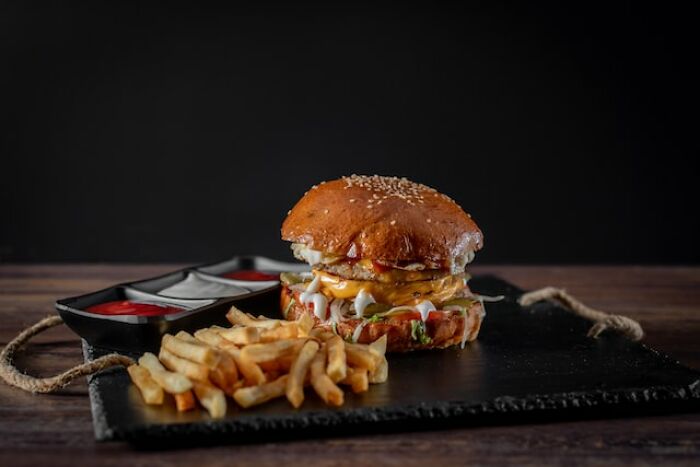 I was really surprised that the people don't eat as healthy as I did back home. Almost instantly I put on 5 kg because my body wasn't used to it.
I was really surprised that the people don't eat as healthy as I did back home. Almost instantly I put on 5 kg because my body wasn't used to it.
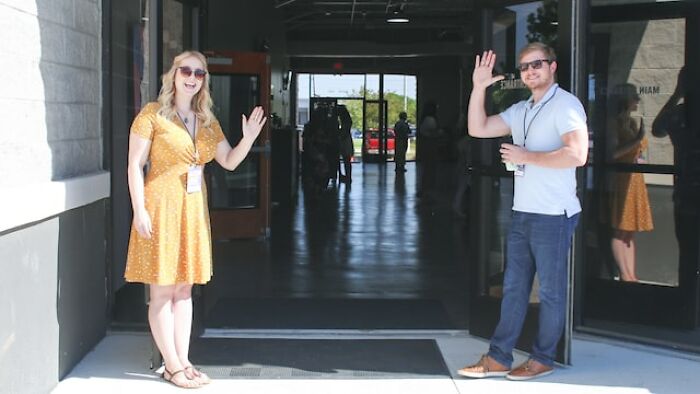 No community in the 1st world.
I live in southern california, so I do hear its different in other places in America. Growing up I knew all my neighbors people would just walk into my house, show up for a quick bite to eat or coffee just because they were near by. I currently live in a series of town homes with most of my neighbors my age, and I know one of their names only because my roommate was was hitting on her and freaked her out.
No community in the 1st world.
I live in southern california, so I do hear its different in other places in America. Growing up I knew all my neighbors people would just walk into my house, show up for a quick bite to eat or coffee just because they were near by. I currently live in a series of town homes with most of my neighbors my age, and I know one of their names only because my roommate was was hitting on her and freaked her out.
Really depends on where you live and if you reach out to others. I live in Southern California as well, but I know all my neighbors in my neighborhood. We exchange small Christmas gifts, chat, do favors for one another, etc. I’ve been invited to holiday parties and watched dogs and cats for others. You have to make an effort as well, instead of just sitting back and wondering why you only know the first name of one neighbor.
I was amazed at how you can go to libraries and borrow books for free without paying anything. I felt like there had to be some catch but after asking numerous questions I complied and got me a library card for borrowing a gazillion books lol
The size of everything, I was picked up from the airport in a Ford Expedition, which was about the size of my house back in Cuba, and then taken to a six bedroom house. I remember I used to feel uncomfortable in the big rooms, so I would hang out in closets and whatnot at first. On a side note, right before I left my older brother told me that in the US you could tell the toilet to wipe you, and a hand would come out of the back to gently wipe your bottom. He went on to specify that I must ask in English, because if I asked in Spanish, the hand would put a finger in my a**. I didn't s**t for a week. So I guess another surprise was normal toilets.
I worked with a great deal of immigrants when I worked for the state, and one of them talked about this once. She was from West Africa, and said the police were the most shocking thing about the US. They are incorruptible, and enforce everything. She said that was very shocking to see, and was very confused by people's anger at the police. A police officer that you can't bribe was beyond her expectations. You might not know this, but native African immigrants(especially from west Africa) don't like African Americans. This caused some issues in my past employment, and the thing they constantly gave them s**t about was how they talked about police and how they acted. This caused some serious screaming matches I had to break up more than once, and this conversation was an extension of that issue.
I'm from the US but taught school where we had a closed community of Laotians that sent their kids to our school. There were Vietnamese in the school district also. Every once in a while a new family would move in who just came to the US. The thing they did not know about were toilets and how they worked. The kids would go on the floor. We had to figure out which one was doing it and train them what to do. They sometimes did not know about electricity either and had to be shown how to turn a light off and on. The kids were thin but had delicate features. They always wore clothes too small that looked like hand me downs. I asked a boy what he had eaten for dinner and he said his dad caught a rabbit. That being said they were very intelligent and usually top of the class in grades. This was in the late 80's and 90's.
Honestly it was the education system. The amount of people struggling with school was just mind boggling. The material didn’t seem that hard and only difficult part was learning English. At the risk of sounding like an a*****e, I placed honor roles without knowing much English and doing significantly less work than back home. However, it became clear that the kids weren’t entirely at fault, parents and the education system were. It’s a shame really, some people have crazy potential and they’re never pushed enough to see it.
I don't think kids never being pushed enough is the problem. People can be intelligent and bright, but learning or getting a degree isn't for everyone. Other school careers are underrated and undervalued. Who fixes plumbing, electricity or cuts your hair when we all have degrees in psychology 😉
people pick up poop after their dog sh**s on the street. in russia there's an expression: Весна придет, говно всплывет. which means "spring will come and s**t will float." that's cuz during the winter every time a dog takes a sh** on the street it freezes and gets covered by snow. now imagine the reverse process as it gets warmer
How deeply unhappy people in first world countries can be. The concept of depression was so new to my family, but also made me very aware of the diversity of the human condition when there is no extreme scarcity. I don’t want to conflate correlation and causation, but the closest word that exists for “depression” in my language is “big sad”… and language tends to be indicative of cultural temperament. Whereas in my language we have about 25 words for various levels of inconvenience… we are annoyed I’m so many ways.
I was a bartender in a fancy restaurant in a pretty affluent part of town, and some of these ultra-wealthy people, many who you could tell were basically "spoon fed" for their whole lives, were just a huge living-mess of depression and un-happiness.
I see how dads are less affectionate. In my culture men dote over their children and indulge them. It's very common to peck on child's cheeks in open. In first world countries, that seems to be a taboo if the child is a boy.
yes they are on a witch hunt for pedos. In the 1950s it was communists, in the 1980s satanists, now it is pedos.
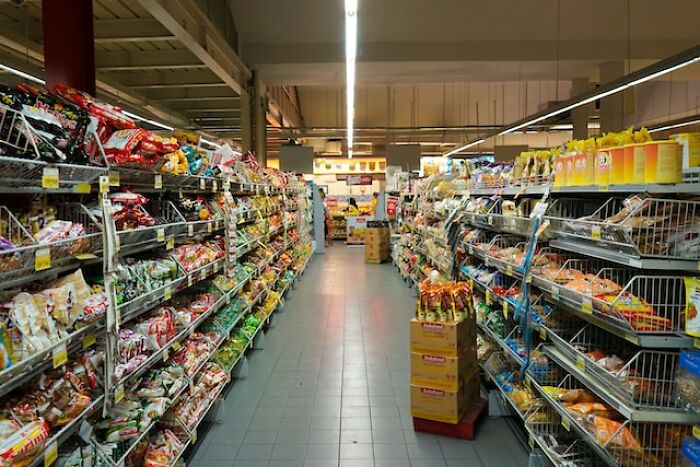 The amount of choice in the stores. It's not that my country didn't have most of the same things, but if you wanted a yogurt you had like one or two choices. Globalization is closing the gap but it is still where I notice the biggest difference. Look at the shelves in places like the USA. You have to walk down an aisle and you are still looking at different options of the same thing. A lot of it is not even different flavors, just different brands, different packaging, different target audience.
The amount of choice in the stores. It's not that my country didn't have most of the same things, but if you wanted a yogurt you had like one or two choices. Globalization is closing the gap but it is still where I notice the biggest difference. Look at the shelves in places like the USA. You have to walk down an aisle and you are still looking at different options of the same thing. A lot of it is not even different flavors, just different brands, different packaging, different target audience.
that blue collar jobs pay more than office jobs (e.g. plumbers make better $ than a 4-year grad in an entry level white collar job). in the 3rd world plumbers, drivers, construction workers are lowest paid
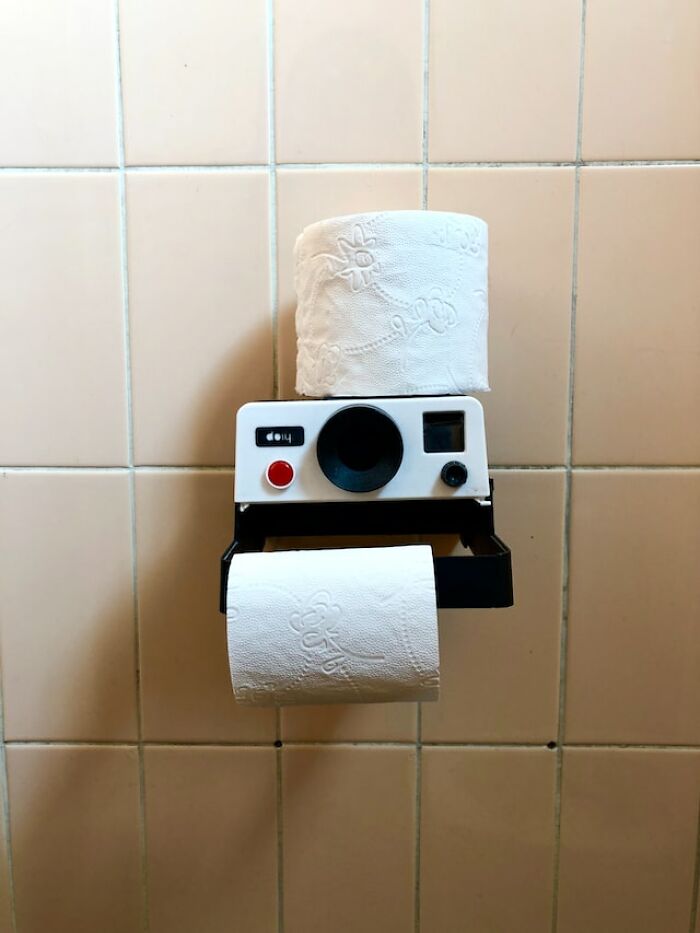 There's toilet paper in most public bathrooms. My mom still carries toilet paper in her purse when she comes to visit me and we go out.
There's toilet paper in most public bathrooms. My mom still carries toilet paper in her purse when she comes to visit me and we go out.
Probably not a bad idea. Paper might be avaible, but only as a 1 ply see-through.
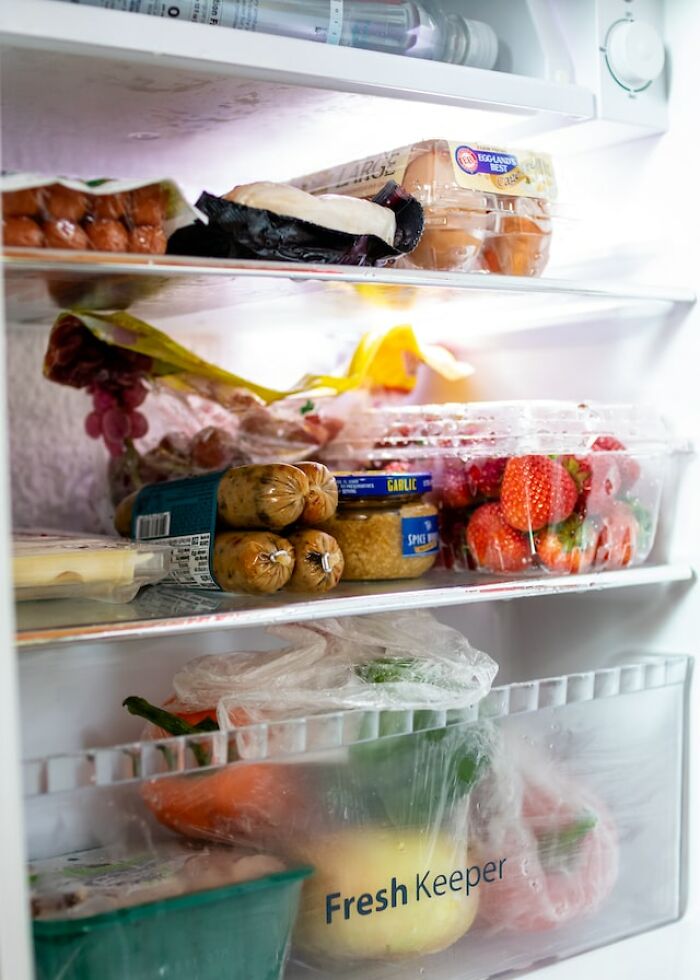 When you're hungry, there is food.
When you're hungry, there is food.
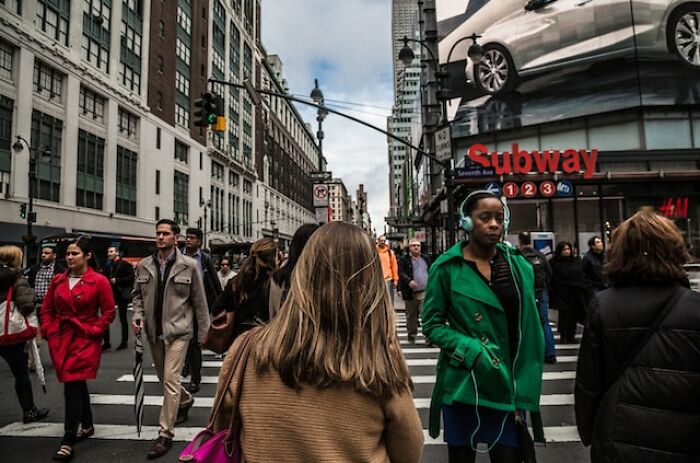 Not my story but my hs history teacher once told us he was from a small village in South America. His family was super poor and whenever he first moved to the United States and saw people of a different race it shocked him. He was about 8 when they moved and he said he only saw people that looked like him so it was surprising when he saw white people black people etc because he just thought everyone looked like him.
Not my story but my hs history teacher once told us he was from a small village in South America. His family was super poor and whenever he first moved to the United States and saw people of a different race it shocked him. He was about 8 when they moved and he said he only saw people that looked like him so it was surprising when he saw white people black people etc because he just thought everyone looked like him.
I taught a child in the early 2000's who was from the Cape Verde islands (they immigrated to South Africa). He had never seen white people before.
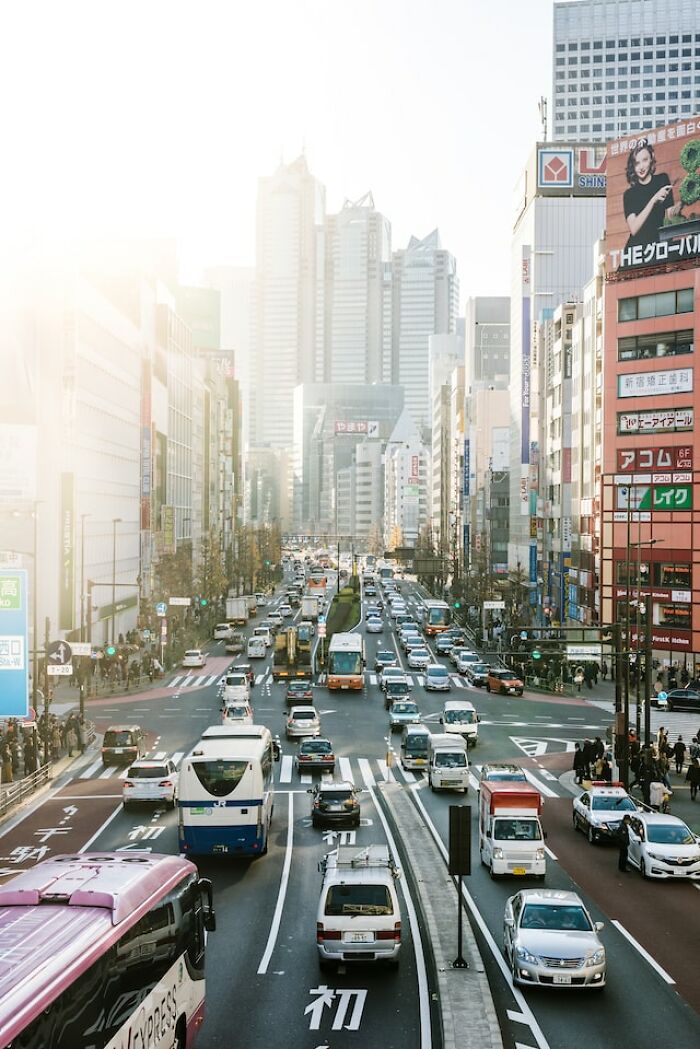 I know someone in that situation, she's mostly surprised that people actually follow traffic rules, give right of way to pedestrians, things like that.
I know someone in that situation, she's mostly surprised that people actually follow traffic rules, give right of way to pedestrians, things like that.
In my city, pedestrians follow the same greenlight as that of vehicles, even though they know that their street light is different.
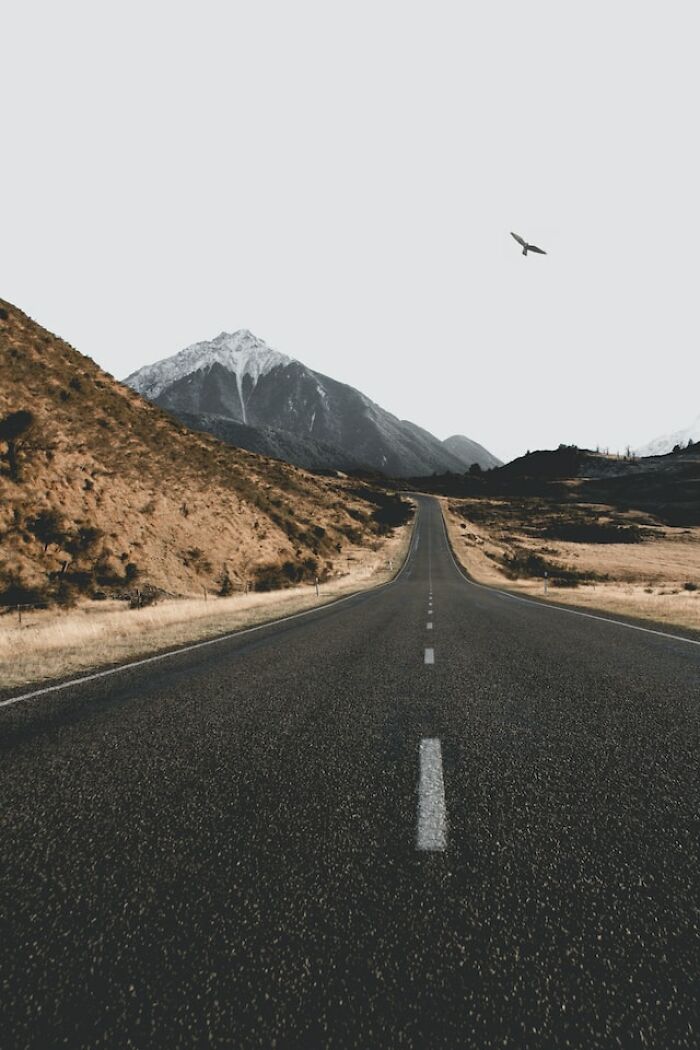 I was living in Ukraine and never traveled abroad before I turned 24. Then I moved to Dubai and lived there for 5+ years. Here are things that amazed me:
1. Was shocked that roads without potholes exist.
2. You can eat any fruits and vegetables without seasonality.
3. Quality of apartments and especially how nice and tidy are common areas before apartments.
4. Loans with low interest rates.
5. Safety. I don't have to hide my phone every time I get into the public transport.
6. People smile back to you!!!
I was living in Ukraine and never traveled abroad before I turned 24. Then I moved to Dubai and lived there for 5+ years. Here are things that amazed me:
1. Was shocked that roads without potholes exist.
2. You can eat any fruits and vegetables without seasonality.
3. Quality of apartments and especially how nice and tidy are common areas before apartments.
4. Loans with low interest rates.
5. Safety. I don't have to hide my phone every time I get into the public transport.
6. People smile back to you!!!
4. is because of the shariah banking. Interest is Haram in muslim countries. They are supposed to charge a fee upfront rather than interest.
 Not me but my best friend. How much cheaper everything is. Iphones, most popular clothing brands, beauty products, electronics are mostly imported and triple the price in their home country.
Not me but my best friend. How much cheaper everything is. Iphones, most popular clothing brands, beauty products, electronics are mostly imported and triple the price in their home country.
I thought this, too, when I visited London for a couple of weeks. Everybody said, "Oh, everything is so much cheaper!" They also said not to convert pounds to rands (it was 1 pound to R18 at the time) but I did and discovered that a LOT of things aren't cheaper. Books were much more expensive. I took photos of the covers of books I wanted, came home to Jozi and ordered them online from a local place.
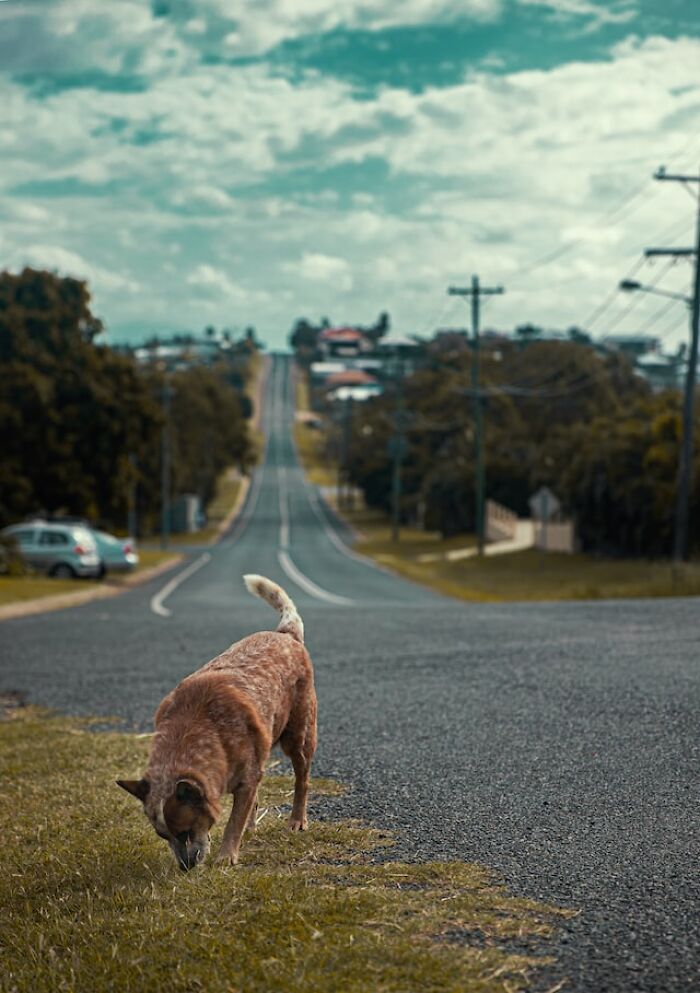 No mosquitos or lizards in the room.
No dogs or cows on the street.
No mosquitos or lizards in the room.
No dogs or cows on the street.
We get mosquitos and lizards but not the dogs and cows, unless you go to a rural area. (SA)
From Colombia to Australia: - There are no street dogs. - You can flush the toilet paper in the toilet and there is no need for a rubbish bin at all in the bathroom. - Public transport works 24 hours in some days. - Most of women know how to drive a car (especially over 45 year old women) - It is hard to find a Disco or nightclub. Most of them are just pubs to have a drink but there is no dancing involved. - You can actually use Tinder with more confidence of not being kidnapped lol. Also, it is acceptable by others. - One is able to use Google Maps to check routes of Public Transport to commute to work. - Labour workers have the same respect as a doctor and they earn enough to live not survive.
As a Second World country citizen going through a Work and Travel J1 Program to the U.S flipped my world upside down. How easy it is to earn money, the freedom that money gives you, and everything that comes with it. At the end of the program when I had to get back home I was depressed for months (getting back to the s**t country I was born in) , needless to say I participated in the program for a grand total of 6 times (consecutive seasons) over the span of 4 masters (you need to be a full time students to participate, and I have reached the age limit for the program that is why I have stopped at 6 times), bought a 2 bedroom apartment with the money earned in the states, (a feat that takes at least 30 years worth of savings on a medium wage - as a couple in my home country). Just to be clear, I have never done anything illegal or outside the parameters of the program, I am a law abiding citizen and appreciate the opportunity that the United States has given my country. I will be forever thankful of the broadened horizon that the experience has given me, and the lessening of the burden that life bestows upon me when money is hard to come by and with great effort. While in the United States I have made friends, worked 2-3 jobs, worked over 80 hours a week every week for 16-17 weeks straight (no days off for the whole duration of the program), enjoyed the little time I had left in the week, perfected the art of grilling and drinking bud light, made love on top of a Brooklyn loft, proposed on top of the Rock, and continuously helped anyone that needed to find housing options for the summer in Newport Rhode Island.
You are the kind of people who we want. Do not think we don't, apply please.
Mostly it comes down to expecting lower standards ( then being surprised when standards are higher)and then realizing that your third world view is affecting how you live in the first world. Having lived in a first world country for ten years now, the difference from when I came here to now is huge. Gone are the old attitudes towards sexuality, race and money. You question how you ever thought life in a developing country was normal. You question things openly , not in fear of reprisal. There is open discourse on political issues. There aren't checkpoints at every intersection. People have an opportunity to be whatever they want. You notice things like trades jobs pay more relative to trades in a developing country. You get see an economy in motion. You are served by an large by a capable police force in the first world. Bribery is not rampant. Education is freely accessible. Electricity, running water. More than one national newspaper. A more open internet. Access to information. Great infrastructure for economical development. A chance to see public transit run effeciently. A ridiculous mixture of races and beliefs. A chance to know more than your limited world view. And if you can't appreciate moving to a civlised part of the world then maybe it should jus chew you up and spit you out. I'm who I am today bcos I was given a chance to see things from a civilized point of view.
Huh. Civilised. How funny. Some rich countries have children killing other children. I would abstain from dividing poor and rich countries into civilised and uncivilised
How easy it was to gain weight
So I know Mexico may not fall under third-world category, but my roommate moved to the states from an area that didn't get electricity till 2012. According to him, an actual native of Mexico, at least his home town is super underdeveloped. The thing he always tells me is so surprising about the US, is the sheer amount of different food. Even when he lived in Mexico City for a while, there was still a ton of food he just never had access to. It blew his mind when he found out we have Chinese, German, Indian, Greek, Thia, and Italian restaurants all with walking distance of our apartments.
Walking distance? When I went to the USA I was surprised that most people didn't walk anywhere because the cities are huge and everyone drives everywhere. There's places where you definitely cannot walk. At least that's my experience when compared to Germany and the UK regarding walking
You accidentally leave your things behind in restaurants/cafes and come back they are still there. And virtually zero petty crimes like robbery and pickpocketing. Super fast internet connection.
How much you take everything you have for granted...like it's just normal for survival to be so easy
In the States, when people say "How are you?" they're not really asking the question. I cringe whenever I think about all the times I stopped for five minutes and talked to the people who asked me that question during freshman year.
I was young when I came to the us but I seriously expected flying cars. Was very disappointed
From my grandmother who came her as the communist revolution happened in China. Having a refrigerator. The ability to have food and not have it spoil for a while. With the addition of a refrigerator, pudding. She only had pudding once when visiting a wealth friend in China.
Having pudding as a Chinese person for the first (or second time)... makes me wonder... didn't she go terribly sick of lactose? Saw this happen to a Chinese colleague during a worklunch. The guy copied us by putting butter on a piece of bread, and he turned a pale shade of green in about 45 seconds after he ate it.
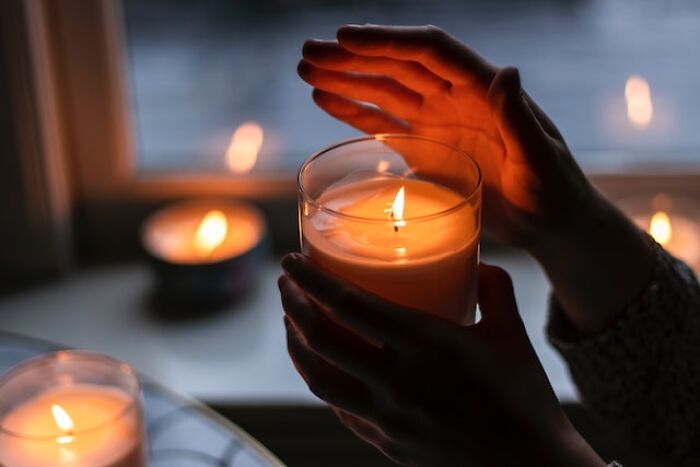 I’ve spent some time in West Africa. One thing that surprised me was talking to a very, very, very well paid employee of an oil company wanting to move to live in a not so great European country.
Since he worked offshore he’d keep his job but didn’t want to live in his home country anymore.
When asked about why (I’m an immigrant myself), he asked me when was the last time I had a power cut at home. It would have been well over a decade then, it was an every day affair for him.
Sometimes it’s things that we don’t even notice.
I’ve spent some time in West Africa. One thing that surprised me was talking to a very, very, very well paid employee of an oil company wanting to move to live in a not so great European country.
Since he worked offshore he’d keep his job but didn’t want to live in his home country anymore.
When asked about why (I’m an immigrant myself), he asked me when was the last time I had a power cut at home. It would have been well over a decade then, it was an every day affair for him.
Sometimes it’s things that we don’t even notice.
I was surprised by the fact that nobody rode donkeys or walked horses in the city. It also surprised me that the government cleared the roads when it snowed because where I was raised the government simply didn't care enough or have the funds to do that. Central air conditioning is also something that I'm still trying to get used to; I find it incredible that you only have to click a few buttons to cool down or warm up the entire house. Last thing, though it is a bit silly, I was amazed that you could buy microwavable mashed potatoes (mashed potato flakes). It had just never occurred to me that it could be a thing that existed!
Waaaaay back in 5th grade, a boy from Jamaica Joined our class, he was surprised at how nice the elementary school was, and had to wear a jacket for a few weeks since he wasn’t used to have AC in the class room, or how friendly everyone was, since he’s seen how horrible tourists were when he lived in Jamaica.
As a woman, because aside from the possibility of being mugged, which is bad, it was the possibility of being r*ped: 1. Not needing to take an Uber or a cab to go back home at night, preferably with others. 2. No need to share your location with friends and family while going back home at night. 3. None of your friends asking to let them know as soon as you arrive home, because they wanted to know you arrived safely. 4. Being followed by men after getting out of public transportation and need to hide in a store or ask for help in your neighborhood. 5. I can wear whatever I want wherever I want, being trousers or miniskirt and no one will look, harass me or try to touch me without my consent.
Honduran here who moved to Germany: Being able to walk in the streets with your phone in your hand was a bizarre feeling. How everyone was on time. Passengers on trains have little to no instructions and mayhem doesn't break lose. Being able to find a ride online from a stranger and not be murdered along the way. How everyone respected convention. (Once I saw a hat on the floor for about as long as I sat there and no one picked it up. In Honduras it'd have been gone in less than a heartbeat.) How they allowed (and protected) the nazi party to hold a demonstration. In Honduras, they would've been repressed in no time. How I didn't really need a car. I was able to take public transportation with my expensive headphones, book and smartphone in full view.
Moved to the US from India. The good: * Professors at universities care so much and are happy to give you their time if you want to learn. Back home, professors go on a power trip making you wait for them and aren't very helpful. * Things just work. Everything is simple. There's a documented process for everything. You can get most things online. You don't need expert knowledge to navigate the system for basics at least. * Low level corruption is zero. * People are kind and open minded and accommodating of differences. People in India are also, but it manifests in a different way that can be a bit annoying to me. * Working hours are a lot saner than back home. * Guns. They are not for me, but it feels like the British took away our guns after 1857 because they saw what happened in America, when I read history. I respect the way yall protect your gun rights. * National parks. They just blow my mind. * Marketing. You guys barely have any history and yet preserve that so well and sell tickets to every random thing that's over 20 years old. Meanwhile there's so many 1000+ year old temples in India that aren't maintained well. The bad: * The individualism is so bad that everyone is so lonely. People cut off their family over things that can be worked out. People also want to exclude family from their lives for silly reasons. People self exclude themselves from taking part in others lives because they think they'll be unwelcome. * People don't realize how good they have it and support stupid political movements that weaken the core of America. Immigration is a good thing for you guys. Capitalism is a good thing for you guys. The alternative is stagnation and rotting. Don't go down that path. * Americans judge their country against Europe. You shouldn't. You're America. You share your history with the other American countries, North and South. You all oppressed your natives, brought in slaves, and now you all have to figure out how to live with it. European countries don't have that baggage. The people they oppressed and enslaved live far far away and their populations are extremely homogenous, they obviously do better in some respects. All your societal problems will be solved if you stop thinking of yourselves as Europeans in a different geography. * Your food is soooooooo unhealthy. * It's really sad how the whole society seems to oppress moms. * Your politics are silly and hilarious. No one seems concerned about any real problems somehow. Everything is fronting and gas. I married an American and I gotta say you folks make great husbands. Also, I realized recently that American dads are just like Asian dads but with sports and physical skill stuff.
"You all oppressed your natives, brought in slaves, and now you all have to figure out how to live with it. European countries don't have that baggage. The people they oppressed and enslaved live far far away and their populations are extremely homogenous, they obviously do better in some respects. " WELL THAT MAKES IT OKAY THEN.
Just the first few that come to mind: * Houses without fences * Windows without bars * Cashiers at the bank counting the money openly * Being able to use the cellphone at the bank * Cars stopping at stop signs * Forgetting stuff in a public place and finding it intact the next day
As someone from a first world country, the last one hasn't been true for me a lot of times... :D
I am now back in Vietnam, my home country, but I lived for 05 years in Texas (01 year in high school and 04 years of college). My first time in Texas was when I was 15. The moment I got off the plane, my American host family was right outside the gate waiting for me. This was August 19, 2001. I thought that was both great and a bit lax in security. Little did I know that airport security in the US would change forever in just a few following weeks. Another thing that struck and stuck with me about Texas was the size of most homes and their adjoining available spaces for outdoor activities. The size of homes did not actually stuck out immediately as I was a kid going through puberty with limited spatial awareness at the time. However, I was painfully made aware of it the moment I returned home for the summer. The family home that I grew up in suddenly felt too cramped. I vividly remember thinking to myself as I set my luggage down and stepped inside the living room that I had grown up in: “I bet and I can take 05 steps and I’ll be in the kitchen. “ About the availability of free public spaces in Texas, not much I can say there except that I really miss it. Just being able to step outside and play catch for real is a blessing, y’all.
Small things made us happy. Like playing on a dusty ground with a football (soccerball) made of plastic bags strewn together into a ball with string, using small rocks as goal posts. Or we'd just walk around and talk. No matter how hungry or poor people were, they found joy in something. When I moved to a wealthier country, fellow peers were so moody and full of angst. Hanging out meant sitting together in a room playing gameboys (this was the 90s) or watching movies, nary any actual personal interaction. Home-made pizza (cheaper) was a no-no. Food brought over had to be dominoes etc. Oh, and god forbid you wear the same clothes to school. Ironically, in some schools, this actually make you more elite.
My friend moved from Mexico to Sweden to study. She was the first one to the student housing so she went out and bought water, thinking how expensive it was going to be to cook. She was surprised you didn’t need to buy/boil water everywhere.
I was walking around Hong Kong, and was astonished to see that someone (presumably on the orders of some local governmental entity) had put up christmas lights above the railing on the subway. If they tried that in Manila, it would be gone and sold within hours.
There was a lady on a podcast I listen to the other night. She ran from north Korea because she saw lights in the distance, and thought she might not starve to death if she went for it. Ended up sold into slavery, and all that fun Chinese stuff. What really stuck out to me was that she said she was terrified once she actually had freedom. Because she was free. I'm not even going to begin to get into her reasons why, but damn if it didn't put things into perspective
All that "Chinese stuff", doesnt make sense. Big difference between Korean and Chinese.
I don't know. I moved from the worst place to live in Latin America (Venezuela) to Argentina. I will say that I was impressed when I saw how people act here. In Venezuela, people are pretty homophobic, so when I say people walking in the streets holding hands and no one saying anything... I was happy. Argentina may have a weird economy, but I like it here. People are great, the meat is amazing, and there are a lot of beautiful people (I'm straight, but that doesn't mean I can't recognize an attractive guy when I see him).
Hahaha I love how critical you are about homophobia but then end the post clarifying you're not gay, as if it was needed.
Public transportation, having bus stops and apps to know WHEN the bus is coming! Also they have maps of the stations. No street dogs. No catcalling. People caring about world problems, like Palestine or Taiwan, in my country most of the protest are only for our own situation, because sucks!
No catcalling? I'm 60 and I still get catcalled. (No I am not flattered. Never was.)
That you can actually save up and buy car by working as a waiter. Where I’m from waiters can barely eat 3 meals a day because of low salary. Even professionals can take up to decade to save enough money to afford a car.
obligatory not me but my dad, He moved from Central America (El Salvador) to the US when he was a teenager and he says that the one thing that surprised him the most was how much more normalized it was for people to walk out at night in the US
How you *actually* have rights. I bought a laptop on a big company, and I had a problem with the space key. I expected to have it repaired and having to pay, but *first world*. They take my laptop without a problem and give me a new one. Every other item devolution ended with my money in my pocket and not with *store credit/same product*, which was pretty awesome. Also, feeling like a *customer* in a supermarket and not as a suspect from robbery. I come from a country that had a dictatorship regime 40 years ago, and I found also pretty awesome how the people use the public places. They are really public and for the use of the community!
1) that you don't have to pay a bathroom sentinel to use a poop hole, and that toilet paper is guaranteed to be provided to you. 2) wearing brand name clothes or speaking a different language isn't a definite making for a kidnapping/theft/shooting 3) strangers smile at you and say good morning/hello and it's supposed to not be creepy but rather polite 4) you have to apologize for bumping into people when filing through busy intersections and subway stations 5) you can buy an actual house near a city and it isn't just your family summer home 6) people can obsessively pretend their dogs are their children and it isn't considered a speculation for mental issues (I.e. highly unusual behaviour) but rather expected 7) no stray dogs and cats on the streets, and people pay to have mutts or get purebred animals that aren't up to standard even though they are still paying $2000 I come from Eastern Europe.
(+) The internet speed. (+) Green plants everywhere. (-) 6 year olds not knowing how to read and write. (Went from Syria to Belgium)
Euhm, Belgian here. Regarding point three... just ... what ??? that's first grade after kindergarten and they are being thaught to read, after a month or three they do simple children's books.
Growing up in a Muslim country, I was simply amazed how easy it is to buy beer and p*rn in US.
I'm not from a third world country but I spent a few years living in one. One thing that struck me when at home was how empty our streets are. Out in the suburbs where I live you very rarely see people walking about, over there people were always walking about no matter where in town you were. Fishing as a recreational activity was considered odd behaviour. Multi generational living was the norm.
How ridiculous health insurance and credit score is. (More leaning 2nd world but still)Took me a while to understand wtf is a credit score and why its ‘important’ sounds like a load of bs. And how people love making payments on smartphones and cars instead of just buying when you have the money is a new concept for me
How well lit everything was, it was like looking at christmas lights, and the first time i smelled burger king and saw a yellow mustang
What surprised my grandmother when she saw Finland was how conservative people were with land usage here. In Nigeria, during imperialism and thereafter a lot of land has been wasted in grand architecture. I remember going to a university there, from entering the front gate we had to drive what was at least half a mile before reaching the first building. Otherwise it was just all grass
how confident people are and the way they approach and talk with sweetness(specially women) blew my mind
I come from one of the founding countries of the Third World, and moved to Canada. The first things that hit me: Holy c**p no one smokes here. Buses are late here too. Wow....people really have no idea how to handle a stick here. Why the f**k are children sitting on floors in school when I apparently came to a civilized country? Wait....how much did you say daycare costs? Wait....how much did you say university costs? (both of these are free where I'm from). Why does no one eat pork? What stuck out the most after all these years is just how law-abiding people are. It genuinely confuses me to this day. I'm not talking about outright murder and theft, but little nuisance laws that would never be followed back home. (Example: smoking bans, lining up in lines, waiting for the light to turn green, seatbelts, speeding, etc..)
How corrupt politicians are. And how incredibly stupid people can be despite having some of the best education available.
Something tells me stupid people exist everywhere, despite their living circumstances.
**THE GOOD** How citizens could hold their leaders accountable to their responsibilities. I lived in a societey where basic duties were delivered to us as favours, even though it's funded by tax payers. **THE BAD** How liberal fantasies have driven the focus off important issues in the west. It's all about wokeness now, 350 pronuouns and counting, everybody is offended by one thing or the other.
a few things.... Roads aren't smooth and clean like glasses/mirrors The girls are not promiscuous as portrayed in the MTV videos and movies There are beggars, we just call them homeless people
Don't say that about American girls! Some of us are plenty promiscuous 😤
Grew up in East Africa, live in United States. Everyone is LOUD, from the little kid to the tall shy nerd, loud and eloquent. Blows my mind everytime. Also, 9/10 of white people try too hard to avoid awkwardness, such that it comes out counter productive, and almost every one is just...super awkward (i work in retail)
Hello. It’s me. Im awkward. I try to avoid it but it’s a part of me. Me trying to be normal just makes me more awkward. Don’t take it personal.
I was always amazed at how it’s illegal to abuse your kids in the West. My parents felt that American kids were spoilt as they could call CPS if the parents were beating them up. As a brainwashed child I also thought the same for a few years
your parents aren't totally wrong, these measures are taken to connect the children directly with the state and transfer their aggressiveness to the exterior, so in case of a more cooperative international logic, parts of the system might be revisited so you won't turn them to criminals. It's true there are also crazy parents, but when in the system they don't suffer consequences anyway (even in us, not many CPS calls in the south) and it's also true that the idea itself is generous, as long as you own it, not it pwns you; i especially like when romanian families are outed abroad, and for a long time this was the only defulating mechanism for the poor assaulted western europeans. the idea is this: you can do everything and not be scared of nothing; the only choice is moral, but the west has the full range of options, while anyone else doesn't.
Load More Replies...I found this very eye-opening. You don't know how lucky you are until someone who boils water just to drink it every day, is used to being mugged at gun point, it's used to having garbage every where, corrupt police means crime is rampant, corrupt builders means your buildings are scary, corrupt politicians steal your money and corrupt military means they could take over and you dare not speak. We are lucky, and boy, do we forget it, when the respect for the law and for democracy (like Jan. 6) puts it in danger. We are witless, indeed.
so poor countries that are invaded, discriminated, intimidated and corrupted are really poor? what a shock! maybe it's the time to stop from invading, discriminating, intimidating and corrupting them and let them rebuild themselves in a healthy manner, in exchange for the free refills. The reaction to such articles makes the difference between people with souls and jerks.
Can we stop using Third World and First World to differentiate countries? They are a product of the Cold War era and have become both outdated and offensive today. Use developing/developed, industrialized, or low and middle income versus high income countries instead.
A friend's first conversation on landing in a first world country. "Do you have the time?", "Yes, I have the time".
I was always amazed at how it’s illegal to abuse your kids in the West. My parents felt that American kids were spoilt as they could call CPS if the parents were beating them up. As a brainwashed child I also thought the same for a few years
your parents aren't totally wrong, these measures are taken to connect the children directly with the state and transfer their aggressiveness to the exterior, so in case of a more cooperative international logic, parts of the system might be revisited so you won't turn them to criminals. It's true there are also crazy parents, but when in the system they don't suffer consequences anyway (even in us, not many CPS calls in the south) and it's also true that the idea itself is generous, as long as you own it, not it pwns you; i especially like when romanian families are outed abroad, and for a long time this was the only defulating mechanism for the poor assaulted western europeans. the idea is this: you can do everything and not be scared of nothing; the only choice is moral, but the west has the full range of options, while anyone else doesn't.
Load More Replies...I found this very eye-opening. You don't know how lucky you are until someone who boils water just to drink it every day, is used to being mugged at gun point, it's used to having garbage every where, corrupt police means crime is rampant, corrupt builders means your buildings are scary, corrupt politicians steal your money and corrupt military means they could take over and you dare not speak. We are lucky, and boy, do we forget it, when the respect for the law and for democracy (like Jan. 6) puts it in danger. We are witless, indeed.
so poor countries that are invaded, discriminated, intimidated and corrupted are really poor? what a shock! maybe it's the time to stop from invading, discriminating, intimidating and corrupting them and let them rebuild themselves in a healthy manner, in exchange for the free refills. The reaction to such articles makes the difference between people with souls and jerks.
Can we stop using Third World and First World to differentiate countries? They are a product of the Cold War era and have become both outdated and offensive today. Use developing/developed, industrialized, or low and middle income versus high income countries instead.
A friend's first conversation on landing in a first world country. "Do you have the time?", "Yes, I have the time".

 Dark Mode
Dark Mode 

 No fees, cancel anytime
No fees, cancel anytime 







